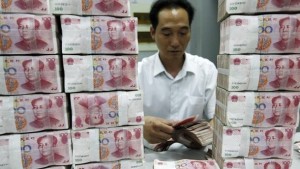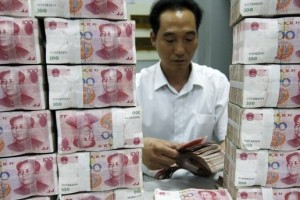Chinese economy growth will slow to 7.1% in 2015
The economic growth in emerging markets in the East Asia and the Pacific is likely to improve this year in most countries, but in general will be delayed because of the decline in China. The growth in the region was supported by the rapid fall in oil prices and expensive USD, which benefit some countries […]

 The economic growth in emerging markets in the East Asia and the Pacific is likely to improve this year in most countries, but in general will be delayed because of the decline in China. The growth in the region was supported by the rapid fall in oil prices and expensive USD, which benefit some countries at the expense of others.
The economic growth in emerging markets in the East Asia and the Pacific is likely to improve this year in most countries, but in general will be delayed because of the decline in China. The growth in the region was supported by the rapid fall in oil prices and expensive USD, which benefit some countries at the expense of others.
The Chinese economy growth rate will slow to 7.1% in 2015 from 7.4% an year earlier, according to a report of World Bank. The growth in emerging markets in Eastern Asia and the Pacific, including China, Indonesia and the Philippines, will slow to 6.7% this year from 6.9% in 2014, she said. Growth in the region as a whole – including developed markets such as South Korea and Singapore – will remain at the level of 6%.
World Bank expects Chinese economy to slow further in the coming years, with growth falling to 6.9% in 2017 because of the policy to deal with the financial vulnerability and achieving sustainable growth.
“The region of East Asia and the Pacific will benefit as a whole from lower fuel prices, but their impact will vary in different countries”, says World Bank report released today. The Bank expects economies that rely on imports of oil or fuel subsidies, such as Indonesia, Thailand and the Philippines, to gain significantly from the falling oil prices, which according to the World Bank can remain up to 45% lower than last year, may increase “only modestly” in 2017. However, the World Bank warns that growth in the East Asia and the Pacific could be threatened by factors inside and outside its borders, such as slowing trade with the Eurozone or Japan.
“Higher interest rates in the US and the appreciation of the USD against the backdrop of divergent monetary policies in developed economies may increase borrowing costs to generate financial volatility, and reduce capital flows more sharply than expected”, said World Bank. According to her falling oil prices provide a “unique opportunity” for many countries in the region to reduce fuel subsidies and raise energy taxes, while the countries of Southeast Asia should focus on achieving the liberalization and integration of their services markets.









